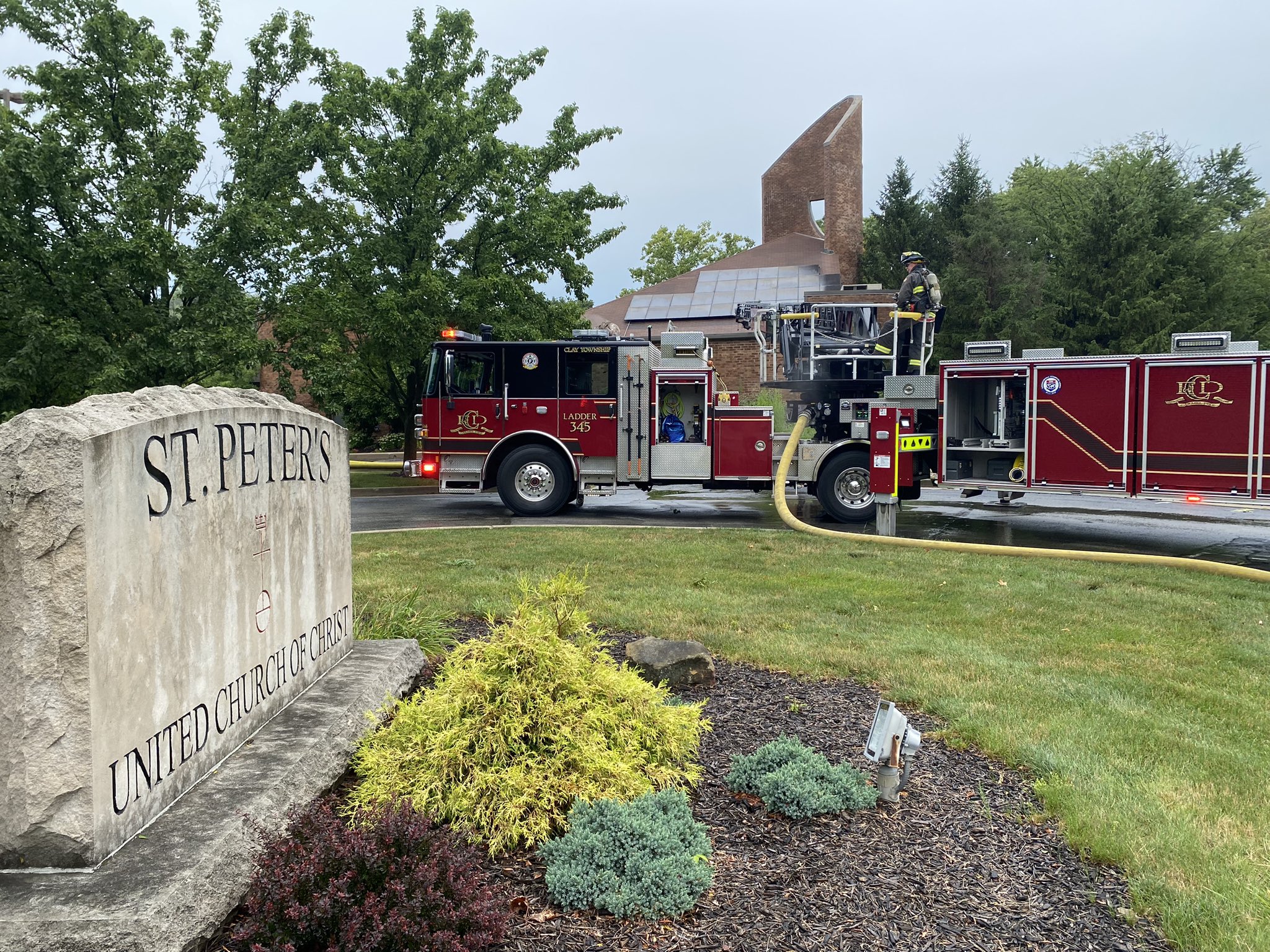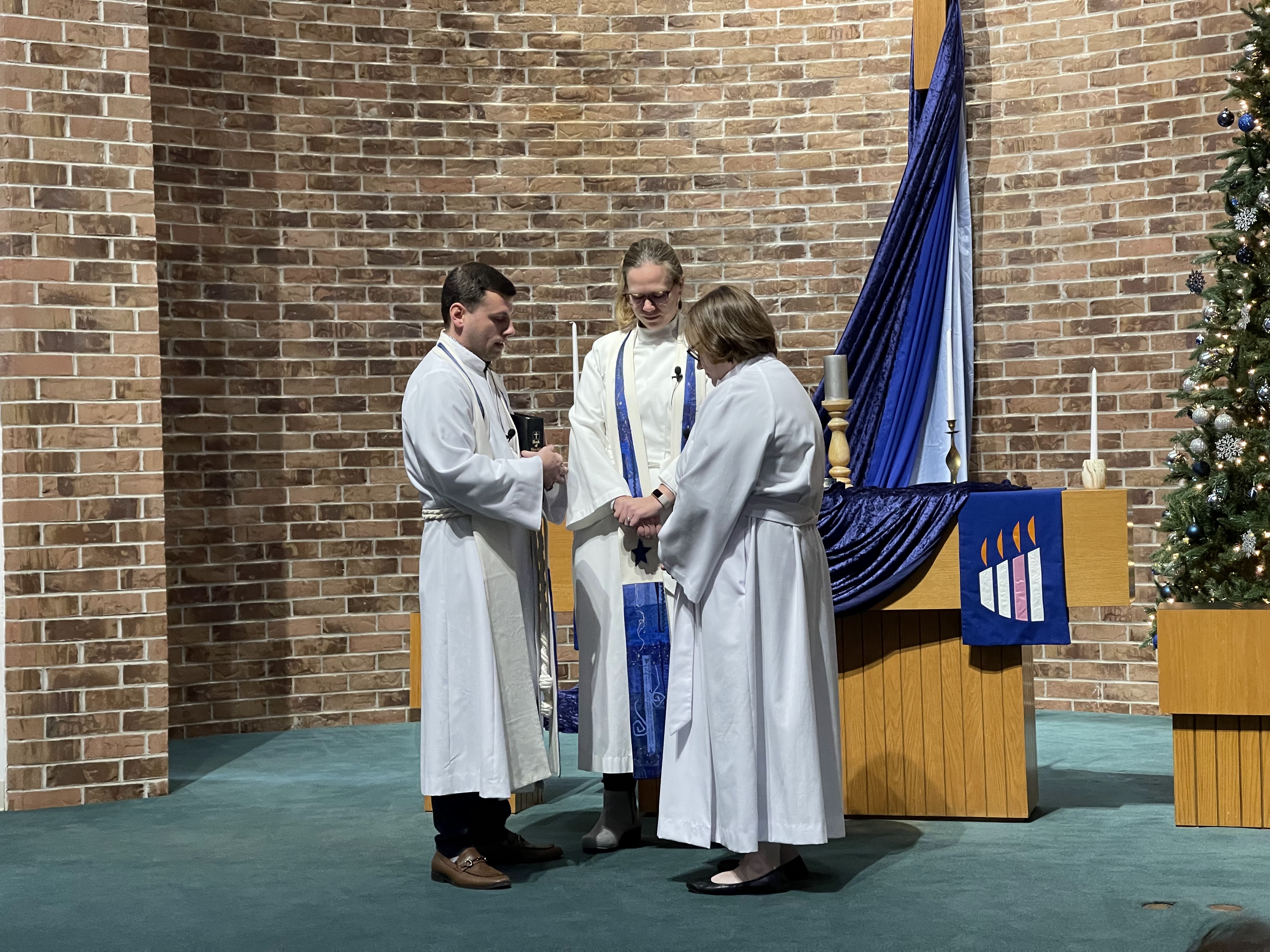This blog post was written by St. Peter’s UCC member, Seth Henseleit-Kriegh.
Seth Henseleit-Kreigh has been attending St. Peter’s since Fall 2015 and has been the Generosity Team Lead since 2018. He married his husband, Sean, in March 2020 and has been an activist for LGBT rights since 2005. Seth is a former contributor to Bilerico.com, a blog covering LGBT issues in Indiana, and co-founded Indiana Action Network, a direct action organization, which successfully lobbied to amend Indianapolis’ Human Rights Ordinance in December 2005 to include sexual orientation and gender identity.
This year, Pride month comes with bittersweet emotions; the enjoyment of rights within the LGBT community and the anger that comes with knowing why those rights need protecting, the celebration of diversity within our community and the shame of acknowledging that discrimination still exists, the pride in seeing LGBT youth living their authentic selves and the pain of remembering those we have lost, and the love we feel for one another in our community and hating that we cannot come together as closely as we should. I also cannot help but reflect on the history of the gay rights movement in the context of the Black Lives Matter movement.
While my community’s movement goes back to 1924, when the first documented gay rights organization was founded in Chicago, its watershed moment occurred on June 28, 1969, at the Stonewall Inn, a gay bar in New York’s Greenwich Village.
That night the police raided the bar and demanded identification from those dressed in what they considered to be gender-inappropriate clothing. While waiting for police wagons to arrive, a crowd began to form, and Michael Levine recalled at an NPR StoryCorps booth that “the drag queens, they’re the ones who said to the police, ‘We’re not leaving.’ And they formed a chorus line outside, in front of the bar. And they stood there, dancing in the street. They were all Puerto Rican drag queens and Irish cops. It was a funny, funny confrontation.”

Stonewall Inn, a gay bar on Christopher Street in Manhattan's Greenwich Village. A 1969 police raid here led to the Stonewall riots, one of the most important events in the history of LGBT rights (and the history of the United States). This picture was taken on pride weekend in 2016, the day after President Obama announced the Stonewall National Monument, and less than two weeks after the Pulse nightclub shooting in Orlando. Source: Rhododendrites

Tensions reached a boiling point when a lesbian, who was struck by a police officer’s nightstick for complaining that her handcuffs were too tight, looked at the bystanders and yelled, “Why don’t you guys do something?” That sentence was what the crowd of drag queens, transgender women of color, and homeless gay youth needed to hear. A relentless barrage of pennies, beer bottles, and rocks were hurled at the police and within minutes, hundreds of people were rioting and continued to demand justice over the next six nights.
Knowing who the first to speak out and act were makes Black Lives Matter so much more unbearable as a gay man. I recognize that the privilege I have today was started by women like Marsha P. Johnson, a black drag queen and AIDS activist, and Sylvia Rivera, a Latina drag queen and trans activist. The same women of color who once stood up for white gay men have now been left behind in fight for rights. As I did my activism nearly twenty years ago, we made a choice to not drop “gender identity” from our amendment to Indianapolis’ Human Rights Ordinance. Despite the ease with which we could have added “sexual orientation” to the protected classes, we felt that we could not leave our trans brothers and sisters behind and we had an obligation to speak for those who didn’t feel they could safely speak for themselves. It took more time and effort, but our community was eventually rewarded by both sexual orientation and gender identity being added to the groups of people who could no longer be discriminated against in housing or work.
In the StoryCorps recording referenced earlier, Michael Levine was asked, “How do you feel about yourself between the beginning of Stonewall and after Stonewall? Did you feel that you were a different person?”
Levine answers, “…I felt the same. I felt comfortable. But I felt the world, now, is more comfortable with me. And Stonewall did that for me.”

Seth married Sean in March 2020, despite the quarantine.

St. Peter's UCC, along with First Congregational United Church of Christ, in the 2019 Indy Pride Parade. Both of our pastors are in this photo. Seth was already at the festival grounds staffing our booth.
St. Peter’s UCC is an Open and Affirming Church, which means we fully affirm the inclusion of all gays, lesbians, bisexuals, transgender, and non-binary persons in the church’s life and ministry. Check us out at ChurchClarity.org. We enthusiastically participate in Indy’s annual PRIDE Parade and you can find a clip of us from 2019 in our highlights video on our YouTube channel.





